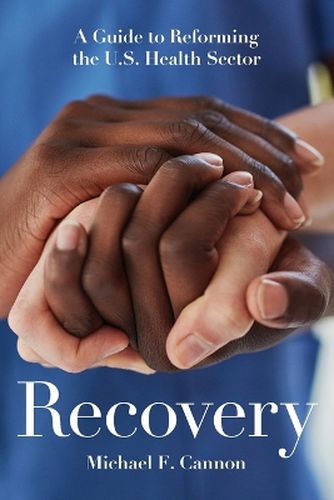Readings Newsletter
Become a Readings Member to make your shopping experience even easier.
Sign in or sign up for free!
You’re not far away from qualifying for FREE standard shipping within Australia
You’ve qualified for FREE standard shipping within Australia
The cart is loading…






This title is printed to order. This book may have been self-published. If so, we cannot guarantee the quality of the content. In the main most books will have gone through the editing process however some may not. We therefore suggest that you be aware of this before ordering this book. If in doubt check either the author or publisher’s details as we are unable to accept any returns unless they are faulty. Please contact us if you have any questions.
A quick-?reference guide to reforms that state and federal policymakers must enact to make health care better, more affordable, more secure, and more universal.
Health care in the United States is not a free market. In many ways, U.S. residents are less free to make their own health decisions than residents of other nations. Government controls a larger share of health spending in the United States than in Canada, the United Kingdom, and most other advanced nations. State and federal governments subsidize low-?quality medical care and penalize high-?quality care. They block innovations that would otherwise reduce medical prices. Congress even funds veterans benefits in a way that increases the likelihood of war.
Fortunately, there are corners of the U.S. health sector where market forces have had room to breathe. In those areas, markets have made health care better, more affordable, and more secure. They have made health care more universal-both in the United States and in nations that supposedly already had universal health care. Sometimes, market forces develop such innovations despite government policies that exist explicitly to block them.
Those sorts of innovations should be exploding across the United States and the world, bringing affordable health care to low-?income patients and driving high-?cost and low-?quality providers and insurers out of business. But they aren't.
Recovery shows that making health care as universal as possible requires ending all barriers that government places in the way of better, more affordable, and more secure health care.
$9.00 standard shipping within Australia
FREE standard shipping within Australia for orders over $100.00
Express & International shipping calculated at checkout
This title is printed to order. This book may have been self-published. If so, we cannot guarantee the quality of the content. In the main most books will have gone through the editing process however some may not. We therefore suggest that you be aware of this before ordering this book. If in doubt check either the author or publisher’s details as we are unable to accept any returns unless they are faulty. Please contact us if you have any questions.
A quick-?reference guide to reforms that state and federal policymakers must enact to make health care better, more affordable, more secure, and more universal.
Health care in the United States is not a free market. In many ways, U.S. residents are less free to make their own health decisions than residents of other nations. Government controls a larger share of health spending in the United States than in Canada, the United Kingdom, and most other advanced nations. State and federal governments subsidize low-?quality medical care and penalize high-?quality care. They block innovations that would otherwise reduce medical prices. Congress even funds veterans benefits in a way that increases the likelihood of war.
Fortunately, there are corners of the U.S. health sector where market forces have had room to breathe. In those areas, markets have made health care better, more affordable, and more secure. They have made health care more universal-both in the United States and in nations that supposedly already had universal health care. Sometimes, market forces develop such innovations despite government policies that exist explicitly to block them.
Those sorts of innovations should be exploding across the United States and the world, bringing affordable health care to low-?income patients and driving high-?cost and low-?quality providers and insurers out of business. But they aren't.
Recovery shows that making health care as universal as possible requires ending all barriers that government places in the way of better, more affordable, and more secure health care.